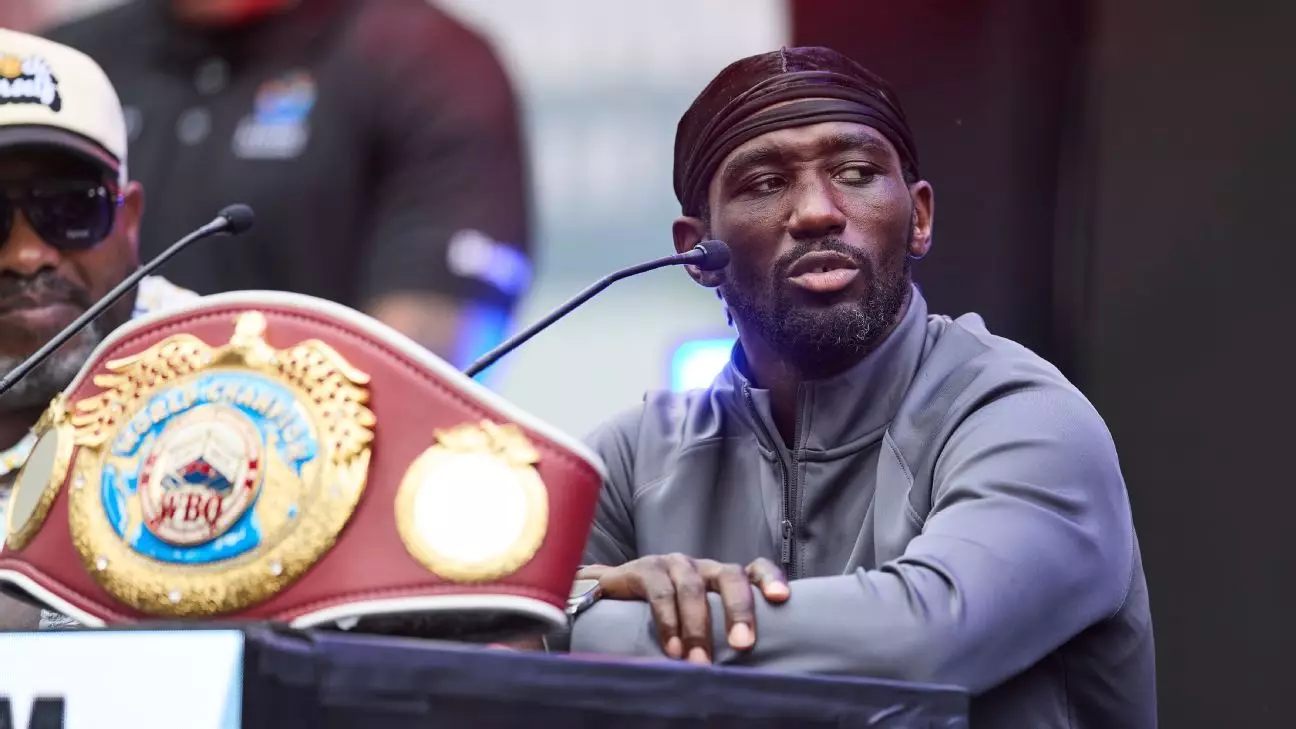In the world of combat sports, few names resonate as powerfully as Terence Crawford and Conor McGregor. Their recent discussions surrounding a potential two-fight deal — one in boxing and the other in mixed martial arts (MMA) — stirred excitement among fans and industry insiders alike. However, Crawford’s firm rejection of an MMA bout has prompted much speculation about the realities of cross-discipline fighting and the boundaries athletes set for themselves.
The Proposal That Shook the Sports World
The offer, orchestrated by Turki Alalshikh, the chairman of Saudi Arabia’s General Entertainment Authority, promised both athletes substantial financial rewards. The prospect of “hundreds of millions” certainly captured attention, yet it glosses over the complexities that accompany switching from boxing gloves to an MMA octagon. For McGregor, who is no stranger to crossover bouts, the chance for a lucrative matchup was more appealing than the tactical concerns typical of fighters entrenched solely in their respective disciplines.
McGregor’s documented history of crossover events began with his 2017 boxing match against Floyd Mayweather. Raking in upwards of $100 million despite the loss, the event not only showcased McGregor’s prowess as a crossover competitor but also broke records in ticket sales and pay-per-view buys. His enthusiasm for a rematch or similar event with Crawford seemed inevitable given his previous success. However, Crawford’s reticence toward engaging in a physical confrontation outside the realm of boxing raises pivotal questions relevant to combat sports athletes today.
Crawford’s Firm Stance: A Matter of Discipline
Crawford’s refusal to step into an MMA bout illustrates the importance of discipline and specialization in combat sports. Recognized as one of the finest pound-for-pound boxers, Crawford’s accomplishments speak volumes about his dedication to the sweet science. During an interview, he candidly expressed his concerns, stating, “I’m not getting in no f—ing Octagon with you so you can be kicking and elbowing me!” His response indicates a respect for the sport of boxing and an understanding of his technique’s inherent limits when compared to the multifaceted approach of MMA.
Have we reached a point where the allure of financial reward must be weighed against an athlete’s identity and core competencies? Crawford’s decision sheds light on a greater narrative within sports: the need for athletes to maintain their integrity by competing within their expertise. While the financial aspects are undeniably compelling, they cannot overshadow the technical distinctions and personal comfort zones that define an athlete’s career trajectory.
For McGregor, the respect for Crawford’s decision was evident. During a live-stream conversation, he reiterated that he understood Crawford’s reluctance, underscoring the idea that although both athletes have achieved significant financial success, they also recognize the fundamental differences in their respective sports. “He said, ‘I don’t want to take a kick,’” McGregor noted, acknowledging the natural boundaries that athletes often face when venturing beyond their established realms of expertise.
This mutual respect between Crawford and McGregor serves as an essential reminder of the complexities faced by athletes in an era that often prioritizes entertainment value over safety and personal authenticity. With Crawford looking to secure a fight against Canelo Alvarez, and McGregor on the mend following an injury, both champions exemplify how carefully navigating their career choices is crucial for their legacies.
As the dust settles on this proposed matchup, it raises broader questions about the future of cross-discipline fights. While the potential for earnings may tempt many, the very structure of these sports often disallows a simple transition from one discipline to another. Athletes like Crawford, with visceral expertise in boxing, must assert their capacity for self-preservation as they plot their professional futures.
With Crawford focusing on his boxing integrity and McGregor aiming for his long-awaited UFC return, it remains to be seen how cross-disciplinary bouts will evolve. Nonetheless, both fighters have made it clear that, for now, they will stay within their individual sports — grappling with the realities of their roles as both competitors and brand ambassadors in an increasingly competitive landscape.


Leave a Reply